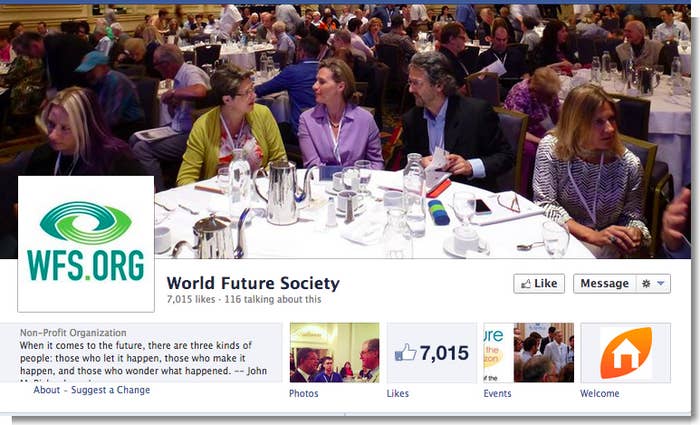
Brian Johnson spends his workdays talking to anthropologists and ethnographers, reading and writing science fiction, and traveling around the world interviewing people in an effort to figure out what the world might look like 25 years from now.
Such is the life of a "futurist," which is the job title Johnson, 40, has held at Intel since 2009. The field of "future-hunting" is growing, with companies ranging from Procter & Gamble to General Motors to Intel hiring "futurists."
When Johnson returns from his field reporting, he communicates his observations to Intel so that the company can start creating products that consumers will want down the road. For example, retail innovations he's predicting in the next 10 years — after spending probably a decade in shopping malls — include in-store holograms, "sentient stores" that will integrate customer data into them to better communicate with shoppers, and "intelligent shelving," featuring digital graphic displays to make buying decisions easier. According to Intel, these ideas have the potential to "change the future of shopping."
Johnson graduated from the New School for social research and started his career building interactive television products before joining Intel as a consumer experience architect.
He spoke with BuzzFeed about what it's like to be a futurist:
On what the field of futurism entails:
"Future casting is a mix of social science, technical research and economic trends...I model out how people will intereact with technology five, 10, 15, 20, 25 years out, how it will feel to be a human and live in the future. I do that because at Intel it takes five to 10 years for us to build the chips, so it's a pragmatic thing."
"Everything I do is based on social science first and foremost, talking to ethnographers and anthropologists...everything I do starts there."
Johnson said he also uses science fiction to facilitate discussions about the future.
What is "future-hunting"?
"I'm going out and talking and looking at the future and getting an understanding of what it will be like.
I go all around the world and make sure that I spend more time outside the U.S. than in the U.S., trying to get an understanding of what people think in India, Stockholm, Sweden, and Hong Kong, and showing them ideas and getting feedback as well and capturing all of that and bringing it back to the lab, ultimately delivering specifications for a chip."
Where are all the futurists? How many are there?
There are at least 1,000, judging by attendance at a conference held by the World Future Society last year, Johnson said.
"They work for large companies, large energy companies and oil companies, they'll do work for the government and militaries definitely, and you'll have some product people. I know General Motors and Ford both have futurists as well as Procter & Gamble. It's a huge amount. It's not hugely popular yet, but because of what capabilities technology has given us, we can have more and more."
There is also an Association of Professional Futurists, among other organizations.
On how technology is fueling the expansion of futurism:
"You're starting to see more and more futurists and mainly this is because of the pace of technology. If it was 20 years ago, you would do this work, and if you were lucky, you'd take your whole lifetime to get the product built and out there, and now all any of us need to do is imagine it and we can build it.
We are at this interesting point in history where our science and our technology have progressed to the point where what we build is only limited by our imaginations. We have tools, we have technologies, we have social networks and we have the ability to print anything, the ability to get crowdfunding, the ability to do almost anything. You just have to have the imagination."
What advice would you give to people in their teens and twenties?
"They should learn to code. Everybody should learn to code and the reason why is not because everybody is going to be a software programmer, but we're going to have so much technology in our lives and codes and algorithms are the ways we interact with machines and machines interact with us, so base-level understanding of that is incredibly important like the way the English language is important. We're only going to have more computers in the future."
.@IntelFuturist Brian David Johnson on the future of retail - where shopping is local & personalized. #futureofretail http://t.co/Enesrwtm0r

Intelligent Systems
@IntelSys
.@IntelFuturist Brian David Johnson on the future of retail - where shopping is local & personalized. #futureofretail http://t.co/Enesrwtm0r

